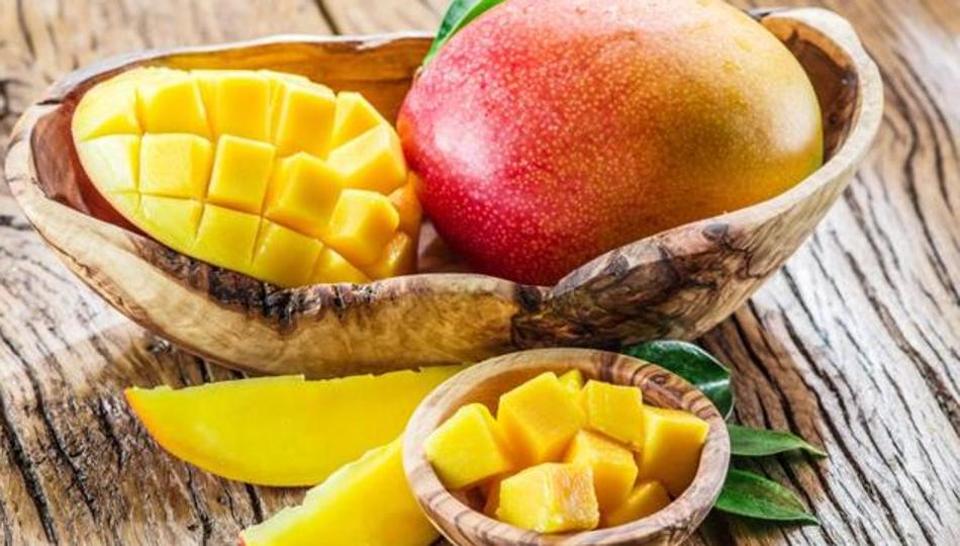
Although the blazing sun and the sweltering heat make life unbearable during the summer in India, the season also brings along its share of perks, with mango possibly being the best of them! The delectable and succulent ‘king of fruits’ not only serves as a sweet dish in itself when it is ripe, but is also used in several delicacies, desserts and beverages.
But experts opine that although this gorgeous orange-yellow fruit is packed with several health benefits, its moderate consumption is the key to stay healthy and fit as feasting too much on this high-calorie fruit may lead to health problems. Different states in India boast of different varieties of mango including Alphonso, Chaunsa, Langra and Kesar.
Ruffy Shaikh, executive chef at the city-based Peninsula Redpine hotel says depending on the varieties of regional mangoes available, restaurants use them in preparing dishes. “Alphonso mangoes are used to make ‘aamras’ in Maharashtra, while Badami mangoes are used in making variety of dishes like ‘maavina hannina gojju’, ‘mango rasa’ curry in Karnataka. Chaunsa, Langra and Dasheri varieties are used in making sweet dishes like kheer, phirni, rabri and shrikhand. In North India and Kerala, mambazha pulissery is devoured as a mango delicacy. Kesar mangoes are famous in Gujarat and are mostly used in making pickles, chutneys and chunda,” he adds.

Lion Bhakta, head chef of the city-based Daily Bar and Kitchen says restaurants have started experimenting with a variety of dishes prepared using mangoes. “In Punjab and Delhi, people like mangoes paired with yogurt. Kerela pairs mango with seafood in quick and easy prawn and fish curries throughout the summer. In Karnataka, they have a seasonal delicacy offering of mango rasam, which is made with jaggery, spices and a green mango on the brink of ripening,” Bhakta adds.
Preeti Seth, a nutritionist and cosmetologist at Pachouli Wellness Clinic in Delhi says health benefits of mangoes have always been a topic of debate since the fruit contains excessive sugar and calorie content that generally overpower its nutritional value. “Diabetics are mostly advised to eat mangoes in moderation. Excessive consumption of mangoes is not good for anyone,” she says.
Mandeep Singh, Fitness Expert and Founder of Step On Fitness Center based in the national capital, says proper consumption of mangoes helps in reduction of weight and even promotes weight gain when added with diary items or by eating plenty of them. “Mangoes have several anti-oxidant properties, alkalises human body and maintains cholesterol level. Mangoes are also rich in iron and calcium which results in elevated bone health. It strengthens our immune system,” Singh says.
Akhil Multani, executive chef at HITCHKI, an eatery based in Mumbai, says mango is known to be a very ‘heaty’ fruit, which may cause skin rashes and some other effects. Chef Amit Bajaj at city-based Glocal Junction eatery says mango is known to increase acne as it has a high glycemic index, hence it quickly increases blood sugar and therefore blood insulin levels. “Since mangoes are loaded with vitamins A, B, and C, as well as fiber, copper, potassium, and magnesium, it is better to keep a moderate number of mangoes in your diet and cut down on other sweets like chocolates and candies,” he says.
According to food experts and chefs, the demand for organically-grown mangoes in on the rise. Maharaj Jodharam Choudhary, corporate chef in Mumbai’s Khandani Rajdhani restaurant says demand for organic mangoes has increased over the last few years as people have started understanding the health benefits of an organic fruit as compared to those cultivated using chemicals. “Organic mangoes are not artificially ripened. The fruit takes its own time to mature and to develop the natural sweetness, thus giving the fruit a much more well rounded flavour and aroma,” he says.
Narayan Salunke, senior executive sous chef, Radisson Blu Resort and Spa at Alibaug in Raigad district also feels that consumers have become conscious about the ill-effects of chemicals that are used to artificially ripen the fruit. Dhawal Shah, chief patisserie at the Dessert Street, says Indian organic food market has begun grow rapidly. “On an average the growth of this industry varies from 30-40 per cent annually. Advantages of organic produce include fewer pesticides and fresher and better stuff,” he says.
[“source=hindustantimes”]








